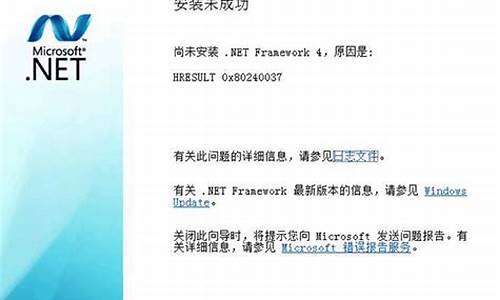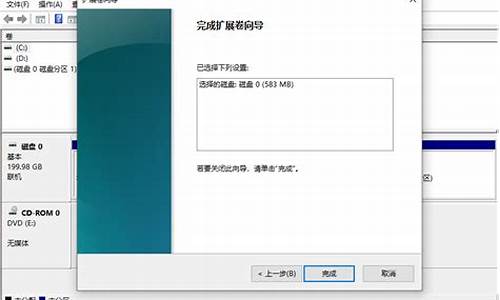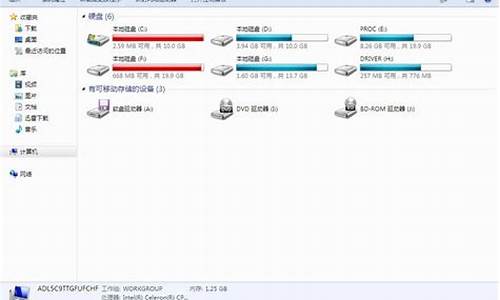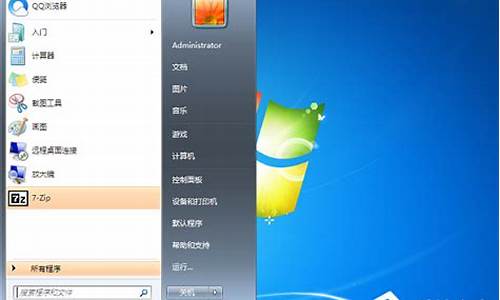电脑系统hesult-电脑系统和手机系统一样吗
1.音标里有元音和辅音,两个的用处有什么不一样,说清楚点,
2.英语读音知识
3.英语中四十八个音节的读法
4.英语48个音素,20个元音,28个辅音的读法?
音标里有元音和辅音,两个的用处有什么不一样,说清楚点,

英语语音基础知识
要想说好英语语音,就要有英语语音的一些基本知识。以下内容供你参考。
1.关于语音的几个概念
1)字母:语言的书写形式。元音字母a, e, i(y), o, u,
2)音标:词的语音形式。
3)音素:音的最小的单位。英语中有48音素。
4)音节:由元音和辅音构成的发音单位。ap'ple, stu'dent, tea'cher, un'der'stand
5)元音:发音响亮,是乐音;口腔中气流不收阻碍;是构成音节的主要音。英语中有20元音。
6)辅音:发音不响亮,是噪音;口腔中气流受到阻碍;不是构成音节的主要音。英语中有28辅音。
7)开音节:a) 辅音+元音+辅音+e name bike ;b) 辅音+元音 he, go, hi
8)闭音节:a) 辅音+元音+辅音 bad, bed, sit, hot, cup; b)元音+辅音it
9)重读音节:单词中发音特别响亮的音节。
2. 元音:(注意:下面空方括号是电脑无法输入的音标)
1)[i:] sea, he, see, piece, ceiling
2)[i] sit, build, miss, myth
3)[e] bed, desk, head,
4)[?] bad, land, bank, stamp
5)[a:] car, fast, class, plant, calm, aunt
6)[?] hot, want
7)[ ?:] door, more, sport, ball, warm, author, court, bought, caught
8)[u:] good, who, blue, soup,
9)[u] look, put, women, could
10)[∧] cup, come, blood, rough
11)[?:] girl, work, serve, nurse
12)[?] cadre, ago, forget, polite, dollar, doctor, famous, Saturday
13)[ei] cake, they, play, eight, great,
14)[ai] bike, die, neither, light, try, find, height, eye
15)[?u] phone, cold, boat, soul, grow
16)[au] house, town
17)[?i] boy, oil
18)[i?] dear, idea, deer, here, fierce,
19)[ε?] pear, care, there, fair
20)[u?] tour, poor,
3. 容易混淆的元音
1)[e] [?] bed bad; men, man; pen, pan; lend land
2)[i:] [ei] real rail; greet, great; mean, main; read raid
3)[e] [ai] bet bite; red write; said side, head, hide
4)[au] [?:] house horse; loud lord; south sauce; now nor; count corn; cloud clause
5)[au] [∧] found fond; gown gone; down don
4. 辅音
1)[p] pen,
2)[b] bed, comb
3)[t] tell,
4)[d], day, played, wanted
5)[k] cold, sky, quick, school, back, accept, box
6)[g] big, go, guess, language
7)[m] man
8)[n] nine, knife, autumn
9)[η] bank, uncle, English, sing,
10)[l] land, world
11)[r] read, write,
12)[f] five, cough, laugh
13)[v] voice, of
14)[θ] think,
15)[ ?] this, bathe
16)[s] sit, miss, science, case, scarf
17)[z] zoo, close,
18)[∫] sure, she, social, nation
19)[/] pleasure,
20)[h] hot, who, hour
21)[w] wall, what, answer
22)[j] yes
23)[t∫] child, teach, catch
24)[d/] joke, bridge,
25)[ts] boats
26)[dz] goods
27)[tr] tree
28)[dr] dream
5. 容易混淆的辅音
1)[v] [w] vet wet; vest west; vine wine; very well
2)[s] [θ] sink think; sort thought; miss myth; mass math
3)[z] [?] closing clothing; breeze breathe; bays bathes
4)[n] [η] thin thing; sin sing; ban bang win wing; ran rang
6. 读音规则
1)重读音节(见元音和辅音的例句)
2)非重读音节 [?] banana, student, today, after,
[i] orange, secret, evening, very, Monday
7. 特殊读音
1)音的连读:not at all, half an hour, I love you and all. after all
2)失去爆破:good girl, good student, good job, expression, school, extreme
3)音的同化:this year, Would you do it? Can't you see it?
8. 重音
1)单词重音
A)双音节词
a)一般在第一个音节重读。letter, sorry
b)有 a-, be-, de-, re-, res-, in-, im-, en-, em-, es-, ex-, con-, com-, dis-, mis-, pre-, per-, pro-, trans- 等前缀的词,第二个音节是重音。
a'bout, be'lieve, ad'dress, de'cide, re'port, con'demn, res'pect, com'pare, in'form, dis'cuss,
im'press, mis'take, en'force, pre'pare, em'ploy, per'mit, es'cape, pro'duce, ex'claim,trans'late
c)有 de-, in-, re-, con-, pre- 等前缀的重音与词义和词类有关, 一般名词的重音在第一个音节上,其它的词性在第二个音节上。
'record, re'cord; 'insult, in'sult; 'conduct, con'duct; 'present pre'sent; 'content, con'tent
d)有些复合词和带有前缀 re-, ex-, un-, pre-, post-, 等的词,有两个重音。
'out'side, 're'tell, 'well-'known, 'un'real, 'fif'teen, 'Chi'nese, 'pre-'war, 'post-'war
B)多音节词
a)一般倒数第三个音节是重音。'difficult, 'communist, 'family, e'conomy, oppor'tunity,de'mocracy.
b)有一些双音节词,加了前缀和后缀成了多音节,但这些词按原来词根的重音读音。
'carefully, in'definite, 'comfortable, con'ductor, ac'cording, dis'turbance, 'complicated,es'tablishment,
c)词尾有-eous, -grahpy, -ial, -ian, -ic, -ics, -ience, ient, -ify, -ion, -ious, -ity, ive 后缀的词,重音在这些后缀的前一个音节上。
cour'teous, cal'ligraphy, edi'torial, his'torian, peri'odic, mathe'matics, ex'perience,suf'ficient, i'dentify, trans'lation, re'ligious, curi'osity, pro'tective
d)词尾有 -ain, -ee, -eer, -ese, -ette 后缀的词,重音在该后缀上,而且有一个次重音。enter'tain, emplo'yee, mountai'neer, Japa'nese, ciga'rette
2)句子重音
A) 英语的节奏:(轻)-轻-重-轻-(轻)或重-轻-(轻)(轻)重
B) 英语句子的长短:是由句子中的重读词的数目决定的,而不是象汉语那样由句子中的汉字数目决定的。
C) 实词重读(副词重读),虚词轻读(冠词,单音节介词,单音节连词,人称代词,反代词,物主代词,关系代词,相互代词,助动词,情态动词和系动词be.
D) 实词不重读的特殊情况
a) 实词第二次出现
He thinks of that as a child thinks.
b) 一个名词被第二个名词修饰
I met her in the railway station.
c) 代替词
Which book do you want? The small one.
d) 感叹词中的 what 和how
What a good day it is! How beautiful she is!
e) street 在专有名词中
Wangfujing Street.
f) this在这些短语中,this morning/afternoon/evening
E)虚词重读的特殊情况
a) 情态动词,助动词和系动词be在句首,句尾和否定时。
Do you like it? Yes, I do. Are you a doctor? Yes, I am. Can you help me? Yes, I can.
I don't like you. He isn't a worker.
b) 情态动词表示可能,惊奇和肯定时。
They may come this evening. Can it be five already? He must be in the room.
c) 介词在句首和句尾。
In the box, he found a letter. He is the person I talked with.
d) 引导复合句的连词在句首。
If you wish, I'll visit you. When he comes, I'll tell him.
e)反身代词表示强调。
He couldn't come himself.
英语读音知识
英 语 音 标
元音
前元音:[ i: ] [ i ] [ e ] [ ? ]
中元音:[ ? ] [ ?: ] [ ? ]
后元音:[a:] [ ? ] [ ?: ] [ u ] [ u: ]
双元音:[ei] [ai] [?i] [au] [?u] [i?] [?] [u?]
辅音
爆破音:(清) [ p ] [ k ] [ t ]
(浊) [ b ] [ ɡ] [ d ]
摩擦音:(清) [ f ] [ ? ] [ s ] [ ? ] [ h ]
(浊) [ v ] [ ? ] [ z ] [ ? ] [ r ]
破擦音:(清) [ t? ] [ tr ] [ ts ]
(浊) [ d? ] [ dr ] [ dz ]
鼻 音: [ m ] [ n ] [?]
舌则音: [ l ]
半元音: [ w ] [ j ]
单词的读音:辅音与元音拼,拼读时,辅音轻、短一点,元音长、重一点,两音相撞产生一个新音;辅音后无元音,发该辅音;元音前无辅音,发该元音,把每次产生的新音,连起来发,一个单词的读音就形成了。
音节:一个单词中有几个元音字母,就有几个音节。但,几个元音字母在一起的只算一个,结尾的一个E不算。
开音节:一个单词中元音字母发其本音,且是“辅元辅E”结构的。Bike, five.
闭音节:元音字母不发本音,发其对应的音(见下表)且是“辅元辅”结构的单词。 Run, get.
元音字母: A E I O U
开音节: [ ei ] [ i:] [ ai ] [ ?u ] [ju:]
闭音节: [ ? ] [ e ] [ i ] [ ? ] [ ? ]/[ u ]
辅 音 音 标 对 应 字 母
[ p ] 对应字母是:P(后无H) pen, map, happy, penfriend
[ b ] 对应字母是:B(注意mb结尾时,b不发音) book, boy,behind, Hob
[ k ] 对应字母是:K,CK,C(后无I/E/Y/H) cake, kite, clock,
[ ɡ] 对应字母是:G (后无E或是DGE) gate, big, dig, girl
[ t ] 对应字母是:T (后无H/R)time, got, table, little
[ d ] 对应字母是:D (后无GE/R)door, dance, road, middle
[ f ] 对应字母是:F,PH five, photo, flight, football
[ v ] 对应字母是:V vest, live, vast, review
[ ?] 对应字母是: TH thing, three, fifth, throw
[ ? ] 对应字母是: TH that, this, father, with
[ s ] 对应字母是: S,CE/CI/CY/ see, dance, city, certainly
[ z ] 对应字母是:Z, 元/浊音后的后加的S zip, zoo, boys, doors
[ ? ] 对应字母是:SH shop, fish, show, English, sheep
[ ? ] 对应字母是:U中间的S usually unusual
[ h ] 对应字母是: H,WH- hole, whole, who, Helen
[ r ] 对应字母是: R(前无T/D/A/E/O)right, robber, room
[ t? ] 对应字母是:CH much, chair, chat, China
[ d? ] 对应字母是:开头的字母J,-GE,-DGE June, just, bridge, change
[ tr ] 对应字母是:TR tree, try, trousers
[ dr ] 对应字母是: DR draw, dress, drive
[ ts ] 对应字母是:-TS,-TES boots, tastes
[ dz ] 对应字母是: -DS, -DES beds, besides
[ m ] 对应字母是: M morning, come, match, comb
[ n ] 对应字母是: N(mn结尾时,n不发音;后无K/G)night, fine, nose, nine
[ ? ] 对应字母是: -NG,-NK think, thing, ink, English
[ l ] 对应字母是: L light, left, let, travel
[ w ] 对应字母是: W-, WH-, -W- why, where, swim,
[ j ] 对应字母是: Y- yes, year, your
元 音 字 母 组 合
[ i: ] 字母组合: E\EA\EE\I\IE be, we, please, feet, see, free, police, machine, believe, piece
[ i ] 字母组合: I\E –Y in, six, English, country
[ e ] 字母组合: E\EA\A pen, yellow, health, sweater, any, many
[ ? ] 字母组合: A bag, man, than, shall
[ ? ] 字母组合: -ER,-OR worker, visitor
[ ?:] 字母组合: ER\IR\UR\OR\EAR her, term, bird, first, turn, burn, worse, learn, earth
[ ? ] 字母组合: U\O\OU cup, hungry, love, front, touch, young
[ a: ] 字母组合: A\AR\AL\AU class, last, are, hard, start, half, aunt
[ ? ] 字母组合: A\O what, wash, not, long, doll
[ ?: ] 字母组合: AL\AU\OR\ORE\OOR\OUR\AR\AW all, chalk, daughter, autumn, sport, born, more, before, four, quarter, draw, saw
[ u ] 字母组合: OUL\U\OO\O book, goodness, could, full, woman,
[ u: ] 字母组合: U\O\OO blue, ruler, do, shoe, zoo, moon
[ ei ] 字母组合: A\-AY\AI\EIGH\-EY name, same, way, day, wait, train, eighteen
[ ai ] 字母组合: I\-Y\IGH I, tiger, by, bye, fly, right, high,
[ ?i ] 字母组合: OI\OY toilet, joy, boy, enjoy
[ au ] 字母组合: OU\OW out, count, round, how, down, town
[ ? ] 字母组合: O\OA\OW close, only, boat, coat, row, know, show
[ i? ] 字母组合: EAR\EER\ERE\EA dear, hear, pioneer, here, idea
[ ? ] 字母组合: AIR\ERE\EAR\EIR\ARE fair, hair, there, wear, their, careful
[ ? ] 字母组合: URE sure
字母音素归类:
A [ ei ]: H, J, K
E [ i: ]: B, C, D, G, P, T, V,
I [ ai ]: Y
O [ ? ]:
U [ju:]: Q, W
[ e ] : F, L, M, N, S, X, Z
[ a: ] : R
语 音 知 识
1.关于语音的几个概念
1) 字母:语言的书写形式。元音字母a, e, i(y), o, u,
2) 音标:词的语音形式。
3) 音素:音的最小的单位。英语中有48音素。
4) 音节:由元音和辅音构成的发音单位。ap'ple, stu'dent, tea'cher, un'der'stand
5) 元音:发音响亮,是元音;口腔中气流不收阻碍;是构成音节的主要音。英语中有20元音。
6) 辅音:发音不响亮,是噪音;口腔中气流受到阻碍;不是构成音节的主要音。英语中有28辅音。
7) 开音节:a) 辅音+元音+辅音+E: name bike home due; b) 辅音+元音 he, go, hi
8) 闭音节:a) 辅音+元音+辅音: bad, bed, sit, hot, cup; b)元音+辅音it
9) 重读音节:单词中发音特别响亮的音节。
2. 元音:
1) [i:] sea, he, see, piece, ceiling
2) [i] sit, build, miss, myth
3) [e] bed, desk, head,
4) [? ] bad, land, bank, stamp
5) [a:] car, fast, class, plant, calm, aunt
6) [?] hot, want
7) [?:] door, more, sport, ball, warm, author, court, bought, caught
8) [u:] good, who, blue, soup,
9) [u] look, put, women, could
10) [?] cup, come, blood, rough
11) [?:] girl, work, serve, nurse
12) [?] cadre, ago, forget, polite, dollar, doctor, famous, Saturday
13) [ei] cake, they, play, eight, great,
14) [ai] bike, die, neither, light, try, find, height, eye
15) [?] phone, cold, boat, soul, grow
16) [au] house, town
17) [?] boy, oil
18) [?] dear, idea, deer, here, fierce,
19) [?] pear, care, there, fair
20) [?] tour, poor,
3. 容易混淆的元音
1) [e] [?] bed bad; men, man; pen, pan; lend land
2) [i:] [ei] real rail; greet, great; mean, main; read raid
3) [e] [ai] bet bite; red write; said side, head, hide
4) [au] [?:] house horse; loud lord; south sauce; now nor; count corn; cloud
5) [au] [?] found fond; gown gone; down don
4. 容易混淆的辅音
1) [v] [w] vet wet; vest west; vine wine; very well
2) [s] [?] sink think; sort thought; miss myth; mass math
3) [z] [?] closing clothing; breeze breathe; bays bathes
4) [n] [?] thin thing; sin sing; ban bang win wing; ran rang
5. 读音规则
1) 重读音节(见元音和辅音的例句)
2) 非重读音节 [?] banana, student, today, after, [i] orange, secret, evening, very, Monday
6. 特殊读音
1)音的连读:前面的词以元辅音结尾,后面的单词以元音开头,这样结尾的辅音要和开头的元音连读。例如:not at all, half an hour, I love you and all. after all
2)失去爆破:辅音爆破音或摩擦音后面跟的是爆破音、破擦音和摩擦等,前面的辅音要失去爆破。例如:good girl, good student, good job, expression, school, extreme
3)音的同化:两个特殊的音碰到一起,会发出变异成特殊的音。例:Would you do it? I am glad to meet you. Can't you see it? last year, this year,
7. 重音
1)单词重音
A)双音节词
一般在第一个音节重读。letter, sorry
有 a-, be-, de-, re-, res-, in-, im-, en-, em-, es-, ex-, con-, com-, dis-, mis-, pre-, per-, pro-, trans- 等前缀的词,第二个音节是重音。a'bout, be'lieve, ad'dress, de'cide, re'port, con'demn, res'pect, com'pare, in'form, dis'cuss, im'press, mis'take, en'force, pre'pare, em'ploy, per'mit, es'cape, pro'duce, ex'claim,trans'late
有 de-, in-, re-, con-, pre- 等前缀的重音与词义和词类有关, 一般名词的重音在第一个音节上,其它的词性在第二个音节上。'record, re'cord; 'insult, in'sult; 'conduct, con'duct; 'present pre'sent; 'content, con'tent
有些复合词和带有前缀 re-, ex-, un-, pre-, post-, 等的词,有两个重音。'out'side, 're'tell, 'well-'known, 'un'real, 'fif'teen, 'Chi'nese, 'pre-'war, 'post-'war
B)多音节词
a)一般倒数第三个音节是重音。'difficult, 'communist, 'family, e'conomy, oppor'tunity, de'mocracy.
b)有一些双音节词,加了前缀和后缀成了多音节,但这些词按原来词根的重音读音。'carefully, in'definite, 'comfortable, con'ductor, ac'cording, dis'turbance, 'complicated, es'tablishment,
c)词尾有-eous, -grahpy, -ial, -ian, -ic, -ics, -ience, ient, -ify, -ion, -ious, -ity, ive 后缀的词,重音在这些后缀的前一个音节上。cour'teous, cal'ligraphy, edi'torial, his'torian, peri'odic, mathe'matics, ex'perience, suf'ficient, i'dentify, trans'lation, re'ligious, curi'osity, pro'tective
d)词尾有 -ain, -ee, -eer, -ese, -ette 后缀的词,重音在该后缀上,而且有一个次重音。enter'tain, emplo'yee, mountai'neer, Japa'nese, ciga'rette
2)句子重音
A) 英语的节奏:(轻)-轻-重-轻-(轻)或重-轻-(轻)(轻)重
B) 英语句子的长短:是由句子中的重读词的数目决定的,而不是象汉语那样由句子中的汉字数目决定的。
C) 实词重读(副词重读),虚词轻读(冠词,单音节介词,单音节连词,人称代词,反代词,物主代词,关系代词,相互代词,助动词,情态动词和系动词be
D) 实词不重读的特殊情况
a) 实词第二次出现 He thinks of that as a child thinks.
b) 一个名词被第二个名词修饰 I met her in the railway station.
c) 代替词 Which book do you want? The small one.
d) 感叹词中的 what 和how What a good day it is! How beautiful she is!
e) street 在专有名词中 Wangfujing Street.
f)this在这些短语中,this morning/afternoon/evening
E)虚词重读的特殊情况
a) 情态动词,助动词和系动词be在句首,句尾和否定时。Do you like it? Yes, I do. Are you a doctor? Yes, I am. Can you help me? Yes, I can. I don't like you. He isn't a worker.
b) 情态动词表示可能,惊奇和肯定时。They may come this evening. Can it be five already? He must be in the room.
c) 介词在句首和句尾。In the box, he found a letter. He is the person I talked with.
d) 引导复合句的连词在句首。If you wish, I'll visit you. When he comes, I'll tell him.
e)反身代词表示强调。He couldn't come himself.
英语中四十八个音节的读法
关于语音的几个概念
1) 字母:语言的书写形式。元音字母a, e, i(y), o, u,
2) 音标:词的语音形式。
3) 音素:音的最小的单位。英语中有48音素。
4) 音节:由元音和辅音构成的发音单位。ap'ple, stu'dent, tea'cher, un'der'stand
5) 元音:发音响亮,是乐音;口腔中气流不收阻碍;是构成音节的主要音。英语中有20元音。
6) 辅音:发音不响亮,是噪音;口腔中气流受到阻碍;不是构成音节的主要音。英语中有28辅音。
7) 开音节:a) 辅音+元音+辅音+e name bike home due; b) 辅音+元音 he, go, hi
8) 闭音节:a) 辅音+元音+辅音 bad, bed, sit, hot, cup; b)元音+辅音it
9) 重读音节:单词中发音特别响亮的音节。
2. 元音:(注意:下面空方括号是电脑无法输入的音标)
1) [i:] sea, he, see, piece, ceiling
2) [i] sit, build, miss, myth
3) [e] bed, desk, head,
4) [ ] bad, land, bank, stamp
5) [a:] car, fast, class, plant, calm, aunt
6) [ ] hot, want
7) [ ] door, more, sport, ball, warm, author, court, bought, caught
8) [u:] good, who, blue, soup,
9) [u] look, put, women, could
10) [ ] cup, come, blood, rough
11) [ ] girl, work, serve, nurse
12) [ ] cadre, ago, forget, polite, dollar, doctor, famous, Saturday
13) [ei] cake, they, play, eight, great,
14) [ai] bike, die, neither, light, try, find, height, eye
15) [ ] phone, cold, boat, soul, grow
16) [au] house, town
17) [ ] boy, oil
18) [ ] dear, idea, deer, here, fierce,
19) [ ] pear, care, there, fair
20) [ ] tour, poor,
3. 容易混淆的元音
1) [e] [] bed bad; men, man; pen, pan; lend land
2) [i:] [ei] real rail; greet, great; mean, main; read raid
3) [e] [AI] bet bite; red write; said side, head, hide
4) [au] [ ] house horse; loud lord; south sauce; now nor; count corn; cloud clause
5) [au] [ ] found fond; gown gone; down don
4. 辅音
1) [p] pen,
2) [b] bed, comb
3) [t] tell,
4) [d], day, played, wanted
5) [k] cold, sky, quick, school, back, accept, box
6) [g] big, go, guess, language
7) [m] man
8) [n] nine, knife, autumn
9) [ ] bank, uncle, English, sing,
10) [l] land, world
11) [r] read, write,
12) [f] five, cough, laugh
13) [v] voice, of
14) [ ] think,
15) [ ] this, bathe
16) [s] sit, miss, science, case, scarf
17) [z] zoo, close,
18) [ ] sure, she, social, nation
19) [ ] pleasure,
20) [h] hot, who, hour
21) [w] wall, what, answer
22) [j] yes
23) [ ] child, teach, catch
24) [ ] joke, bridge,
25) [ts] boats
26) [dz] goods
27) [tr] tree
28) [dr] dream
5. 容易混淆的辅音
1) [v] [w] vet wet; vest west; vine wine; very well
2) [s] [ ] sink think; sort thought; miss myth; mass math
3) [z] [ ] closing clothing; breeze breathe; bays bathes
4) [n] [ ] thin thing; sin sing; ban bang win wing; ran rang
6. 读音规则
1) 重读音节(见元音和辅音的例句)
2) 非重读音节 [ ] banana, student, today, after, [i] orange, secret, evening, very, Monday
7. 特殊读音
1)音的连读:前面的词以元辅音结尾,后面的单词以元音开头,这样结尾的辅音要和开头的元音连读。例如:not at all, half an hour, I love you and all. after all
2)失去爆破:辅音爆破音或摩擦音后面跟的是爆破音、破擦音和摩擦等,前面的辅音要失去爆破。例如:good girl, good student, good job, expression, school, extreme
3)音的同化:两个特殊的音碰到一起,会发出变异成特殊的音。例如:Would you do it? I am glad to meet you. Can't you see it? last year, this year,
8. 重音
1)单词重音
A)双音节词
a)一般在第一个音节重读。letter, sorry
b)有 a-, be-, de-, re-, res-, in-, im-, en-, em-, es-, ex-, con-, com-, dis-, mis-, pre-, per-, pro-, trans- 等前缀的词,第二个音节是重音。a'bout, be'lieve, ad'dress, de'cide, re'port, con'demn, res'pect, com'pare, in'form, dis'cuss, im'press, mis'take, en'force, pre'pare, em'ploy, per'mit, es'cape, pro'duce, ex'claim,trans'late
c)有 de-, in-, re-, con-, pre- 等前缀的重音与词义和词类有关, 一般名词的重音在第一个音节上,其它的词性在第二个音节上。'record, re'cord; 'insult, in'sult; 'conduct, con'duct; 'present pre'sent; 'content, con'tent
d)有些复合词和带有前缀 re-, ex-, un-, pre-, post-, 等的词,有两个重音。'out'side, 're'tell, 'well-'known, 'un'real, 'fif'teen, 'Chi'nese, 'pre-'war, 'post-'war
B)多音节词
a)一般倒数第三个音节是重音。'difficult, 'communist, 'family, e'conomy, oppor'tunity,de'mocracy.
b)有一些双音节词,加了前缀和后缀成了多音节,但这些词按原来词根的重音读音。'carefully, in'definite, 'comfortable, con'ductor, ac'cording, dis'turbance, 'complicated,es'tablishment,
c)词尾有-eous, -grahpy, -ial, -ian, -ic, -ics, -ience, ient, -ify, -ion, -ious, -ity, ive 后缀的词,重音在这些后缀的前一个音节上。cour'teous, cal'ligraphy, edi'torial, his'torian, peri'odic, mathe'matics, ex'perience,suf'ficient, i'dentify, trans'lation, re'ligious, curi'osity, pro'tective
d)词尾有 -ain, -ee, -eer, -ese, -ette 后缀的词,重音在该后缀上,而且有一个次重音。enter'tain, emplo'yee, mountai'neer, Japa'nese, ciga'rette
2)句子重音
A) 英语的节奏:(轻)-轻-重-轻-(轻)或重-轻-(轻)(轻)重
B) 英语句子的长短:是由句子中的重读词的数目决定的,而不是象汉语那样由句子中的汉字数目决定的。
C) 实词重读(副词重读),虚词轻读(冠词,单音节介词,单音节连词,人称代词,反代词,物主代词,关系代词,相互代词,助动词,情态动词和系动词be
D) 实词不重读的特殊情况
a) 实词第二次出现 He thinks of that as a child thinks.
b) 一个名词被第二个名词修饰 I met her in the railway station.
c) 代替词 Which book do you want? The small one.
d) 感叹词中的 what 和how What a good day it is! How beautiful she is!
e) street 在专有名词中 Wangfujing Street.
f)this在这些短语中,this morning/afternoon/evening
E)虚词重读的特殊情况
a) 情态动词,助动词和系动词be在句首,句尾和否定时。Do you like it? Yes, I do. Are you a doctor? Yes, I am. Can you help me? Yes, I can. I don't like you. He isn't a worker.
b) 情态动词表示可能,惊奇和肯定时。They may come this evening. Can it be five already? He must be in the room.
c) 介词在句首和句尾。In the box, he found a letter. He is the person I talked with.
d) 引导复合句的连词在句首。If you wish, I'll visit you. When he comes, I'll tell him.
e)反身代词表示强调。He couldn't come himself.
英语48个音素,20个元音,28个辅音的读法?
关于语音的几个概念
1) 字母:语言的书写形式。元音字母a, e, i(y), o, u,
2) 音标:词的语音形式。
3) 音素:音的最小的单位。英语中有48音素。
4) 音节:由元音和辅音构成的发音单位。ap'ple, stu'dent, tea'cher, un'der'stand
5) 元音:发音响亮,是乐音;口腔中气流不收阻碍;是构成音节的主要音。英语中有20元音。
6) 辅音:发音不响亮,是噪音;口腔中气流受到阻碍;不是构成音节的主要音。英语中有28辅音。
7) 开音节:a) 辅音+元音+辅音+e name bike home due; b) 辅音+元音 he, go, hi
8) 闭音节:a) 辅音+元音+辅音 bad, bed, sit, hot, cup; b)元音+辅音it
9) 重读音节:单词中发音特别响亮的音节。
2. 元音:(注意:下面空方括号是电脑无法输入的音标)
1) [i:] sea, he, see, piece, ceiling
2) [i] sit, build, miss, myth
3) [e] bed, desk, head,
4) [ ] bad, land, bank, stamp
5) [a:] car, fast, class, plant, calm, aunt
6) [ ] hot, want
7) [ ] door, more, sport, ball, warm, author, court, bought, caught
8) [u:] good, who, blue, soup,
9) [u] look, put, women, could
10) [ ] cup, come, blood, rough
11) [ ] girl, work, serve, nurse
12) [ ] cadre, ago, forget, polite, dollar, doctor, famous, Saturday
13) [ei] cake, they, play, eight, great,
14) [ai] bike, die, neither, light, try, find, height, eye
15) [ ] phone, cold, boat, soul, grow
16) [au] house, town
17) [ ] boy, oil
18) [ ] dear, idea, deer, here, fierce,
19) [ ] pear, care, there, fair
20) [ ] tour, poor,
3. 容易混淆的元音
1) [e] [] bed bad; men, man; pen, pan; lend land
2) [i:] [ei] real rail; greet, great; mean, main; read raid
3) [e] [AI] bet bite; red write; said side, head, hide
4) [au] [ ] house horse; loud lord; south sauce; now nor; count corn; cloud clause
5) [au] [ ] found fond; gown gone; down don
4. 辅音
1) [p] pen,
2) [b] bed, comb
3) [t] tell,
4) [d], day, played, wanted
5) [k] cold, sky, quick, school, back, accept, box
6) [g] big, go, guess, language
7) [m] man
8) [n] nine, knife, autumn
9) [ ] bank, uncle, English, sing,
10) [l] land, world
11) [r] read, write,
12) [f] five, cough, laugh
13) [v] voice, of
14) [ ] think,
15) [ ] this, bathe
16) [s] sit, miss, science, case, scarf
17) [z] zoo, close,
18) [ ] sure, she, social, nation
19) [ ] pleasure,
20) [h] hot, who, hour
21) [w] wall, what, answer
22) [j] yes
23) [ ] child, teach, catch
24) [ ] joke, bridge,
25) [ts] boats
26) [dz] goods
27) [tr] tree
28) [dr] dream
5. 容易混淆的辅音
1) [v] [w] vet wet; vest west; vine wine; very well
2) [s] [ ] sink think; sort thought; miss myth; mass math
3) [z] [ ] closing clothing; breeze breathe; bays bathes
4) [n] [ ] thin thing; sin sing; ban bang win wing; ran rang
6. 读音规则
1) 重读音节(见元音和辅音的例句)
2) 非重读音节 [ ] banana, student, today, after, [i] orange, secret, evening, very, Monday
7. 特殊读音
1)音的连读:前面的词以元辅音结尾,后面的单词以元音开头,这样结尾的辅音要和开头的元音连读。例如:not at all, half an hour, I love you and all. after all
2)失去爆破:辅音爆破音或摩擦音后面跟的是爆破音、破擦音和摩擦等,前面的辅音要失去爆破。例如:good girl, good student, good job, expression, school, extreme
3)音的同化:两个特殊的音碰到一起,会发出变异成特殊的音。例如:Would you do it? I am glad to meet you. Can't you see it? last year, this year,
8. 重音
1)单词重音
A)双音节词
a)一般在第一个音节重读。letter, sorry
b)有 a-, be-, de-, re-, res-, in-, im-, en-, em-, es-, ex-, con-, com-, dis-, mis-, pre-, per-, pro-, trans- 等前缀的词,第二个音节是重音。a'bout, be'lieve, ad'dress, de'cide, re'port, con'demn, res'pect, com'pare, in'form, dis'cuss, im'press, mis'take, en'force, pre'pare, em'ploy, per'mit, es'cape, pro'duce, ex'claim,trans'late
c)有 de-, in-, re-, con-, pre- 等前缀的重音与词义和词类有关, 一般名词的重音在第一个音节上,其它的词性在第二个音节上。'record, re'cord; 'insult, in'sult; 'conduct, con'duct; 'present pre'sent; 'content, con'tent
d)有些复合词和带有前缀 re-, ex-, un-, pre-, post-, 等的词,有两个重音。'out'side, 're'tell, 'well-'known, 'un'real, 'fif'teen, 'Chi'nese, 'pre-'war, 'post-'war
B)多音节词
a)一般倒数第三个音节是重音。'difficult, 'communist, 'family, e'conomy, oppor'tunity,de'mocracy.
b)有一些双音节词,加了前缀和后缀成了多音节,但这些词按原来词根的重音读音。'carefully, in'definite, 'comfortable, con'ductor, ac'cording, dis'turbance, 'complicated,es'tablishment,
c)词尾有-eous, -grahpy, -ial, -ian, -ic, -ics, -ience, ient, -ify, -ion, -ious, -ity, ive 后缀的词,重音在这些后缀的前一个音节上。cour'teous, cal'ligraphy, edi'torial, his'torian, peri'odic, mathe'matics, ex'perience,suf'ficient, i'dentify, trans'lation, re'ligious, curi'osity, pro'tective
d)词尾有 -ain, -ee, -eer, -ese, -ette 后缀的词,重音在该后缀上,而且有一个次重音。enter'tain, emplo'yee, mountai'neer, Japa'nese, ciga'rette
2)句子重音
A) 英语的节奏:(轻)-轻-重-轻-(轻)或重-轻-(轻)(轻)重
B) 英语句子的长短:是由句子中的重读词的数目决定的,而不是象汉语那样由句子中的汉字数目决定的。
C) 实词重读(副词重读),虚词轻读(冠词,单音节介词,单音节连词,人称代词,反代词,物主代词,关系代词,相互代词,助动词,情态动词和系动词be
D) 实词不重读的特殊情况
a) 实词第二次出现 He thinks of that as a child thinks.
b) 一个名词被第二个名词修饰 I met her in the railway station.
c) 代替词 Which book do you want? The small one.
d) 感叹词中的 what 和how What a good day it is! How beautiful she is!
e) street 在专有名词中 Wangfujing Street.
f)this在这些短语中,this morning/afternoon/evening
E)虚词重读的特殊情况
a) 情态动词,助动词和系动词be在句首,句尾和否定时。Do you like it? Yes, I do. Are you a doctor? Yes, I am. Can you help me? Yes, I can. I don't like you. He isn't a worker.
b) 情态动词表示可能,惊奇和肯定时。They may come this evening. Can it be five already? He must be in the room.
c) 介词在句首和句尾。In the box, he found a letter. He is the person I talked with.
d) 引导复合句的连词在句首。If you wish, I'll visit you. When he comes, I'll tell him.
e)反身代词表示强调。He couldn't come himself.
声明:本站所有文章资源内容,如无特殊说明或标注,均为采集网络资源。如若本站内容侵犯了原著者的合法权益,可联系本站删除。












